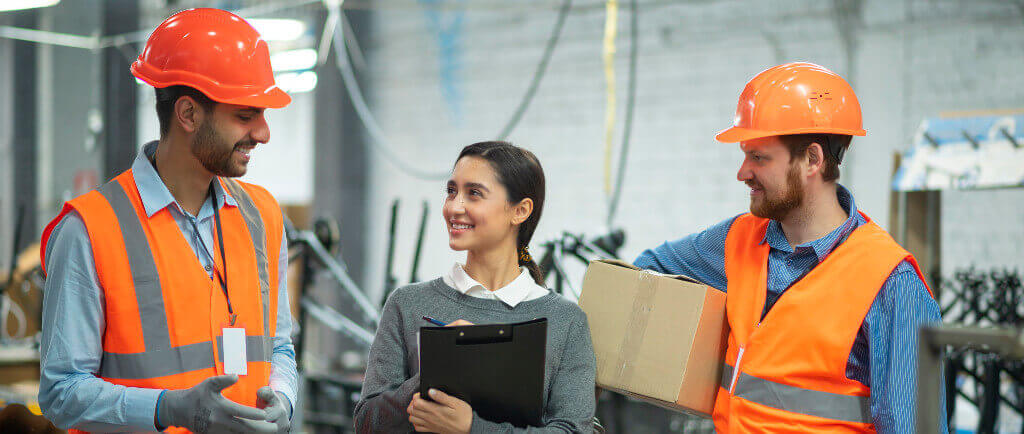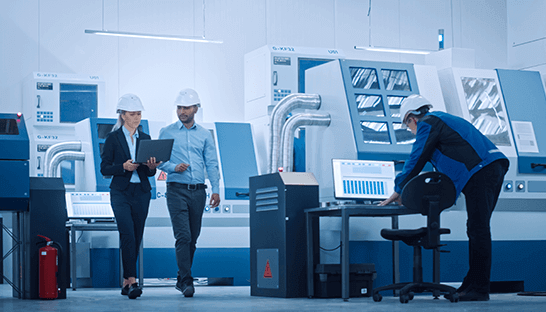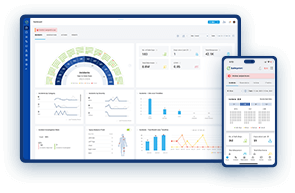
Roles and Responsibilities of Facility Managers
Facilities management is the unsung hero of modern businesses. In the intricate tapestry of organizations, facility managers (FMs) are the master weavers, responsible for ensuring that the physical spaces where work happens are seamless, efficient, and safe. They are the architects of a functional workplace, but their influence extends far beyond just bricks and mortar. Their impact resonates in the balance sheets, the employee satisfaction surveys, and the smooth flow of daily operations.
Now, let’s delve into the core of the article, starting with the roles and responsibilities of facility managers.
Primary Duties of Facility Managers:

At the heart of facility management lies a diverse spectrum of responsibilities, each crucial to the smooth functioning of an organization:
1. Maintenance: Facility managers are the guardians of physical assets. They oversee routine maintenance, repairs, and upgrades, ensuring that everything from HVAC systems to plumbing operates flawlessly. Preventive maintenance schedules are their compass to avoid costly breakdowns.
2. Security: Security isn’t just about surveillance cameras and access control. FMs design and implement security protocols to protect people and assets. They create emergency response plans and provide training to ensure everyone knows what to do in a crisis.
3. Space Planning: The layout of a workspace impacts productivity and well-being. FMs are like puzzle solvers, optimizing spatial configurations to foster collaboration, comfort, and efficiency. Their decisions influence the ambiance, workflow, and ergonomics of the workplace.
Related read: Our listing of the best Health and Safety Software.
Varied Roles for Varied Facilities

One size does not fit all in facility management. The specific duties of an FM can change significantly depending on the type of facility they oversee. Here’s a glimpse of how their roles adapt to different environments:
Office Buildings: In these settings, FMs focus on creating productive and pleasant workspaces. They manage office layouts, climate control, and services like catering, aiming to keep employees happy and productive.
Hospitals: Hospitals demand impeccable precision in facility management. FMs here prioritize patient safety, sanitation, and regulatory compliance, ensuring the facility is always ready to provide top-notch healthcare.
Manufacturing Plants: In the world of manufacturing, downtime is expensive. Facility managers in this domain concentrate on equipment maintenance, energy efficiency, and workflow optimization to minimize disruptions and maximize output.
In the next section, we’ll explore the essential skills and qualities that empower facility managers to excel in their multifaceted roles.
Key Skills and Qualities of Facility Managers:

Behind every efficient facility manager lies a skill set and personal attributes that set them apart:
1. Problem Solving: FMs are the troubleshooters of the facility world. They analyze complex issues, identify root causes, and find pragmatic solutions. Their ability to think on their feet is their greatest asset.
2. Communication: Effective FMs are excellent communicators. They liaise with various stakeholders, from maintenance teams to top management, conveying ideas clearly and listening actively to ensure smooth operations.
3. Technical Proficiency: A deep understanding of facility systems, from HVAC to fire suppression, is non-negotiable. FMs must know the nuts and bolts of their facilities to make informed decisions.
4. Leadership: FMs are leaders without titles. They inspire teams, motivate staff, and lead by example. Their leadership fosters a culture of responsibility and excellence.
5. Financial Acumen: Managing budgets and resources is central to FM roles. FMs must be adept at financial planning, cost control, and resource allocation.
6. Adaptability: The facility landscape is ever-changing. FMs need to embrace new technologies, regulations, and industry trends. Their adaptability ensures facilities remain competitive.
7. Attention to Detail: Overlooking the smallest detail can lead to costly consequences. FMs have a meticulous eye, spotting potential issues before they escalate.
8. Customer Focus: Whether it’s employees, tenants, or clients, FMs put customer needs first. Their ability to anticipate and meet those needs ensures satisfaction.
9. Organizational Skills: FMs juggle numerous tasks. Exceptional organizational skills help them manage diverse responsibilities efficiently.
10. Resilience: Facilities don’t take a day off, and neither do FMs. They handle crises with grace, staying composed under pressure.
11. Regulatory Knowledge: Staying compliant with ever-evolving regulations is paramount. FMs remain well-versed in building codes, safety standards, and environmental regulations.
12. Sustainability Awareness: In an environmentally conscious world, FMs champion sustainability. They implement eco-friendly practices, reducing the facility’s carbon footprint.
13. Interpersonal Skills: FMs work closely with diverse teams and stakeholders. Their interpersonal skills foster collaboration and build strong working relationships.
14. Strategic Thinking: Beyond daily tasks, FMs are strategic planners. They align facility management with the organization’s long-term goals.
The multifaceted skills, adaptability, and unwavering dedication of facility managers make them indispensable orchestrators of spaces where innovation, productivity, and well-being seamlessly coexist. Far more than mere caretakers, they are the architects behind thriving workplaces, making a profound impact on organizational achievements.
Related read: Roles and responsibilities of an EHS Manager.

Ramesh Nair is the Founder and Principal Partner of Niyati Technologies, the company behind Safetymint.
He’s a dedicated advocate for workplace safety. Ramesh firmly believes that every individual deserves to return home safely after a day’s work. Safetymint, the innovative safety management software, emerged from this conviction. It’s a platform designed to streamline safety management, empower safety professionals, and enhance safety in workplaces.
Through his blog, Ramesh shares insights, best practices, and innovative solutions for workplace safety. Visit his social media profiles to follow him for regular updates.




